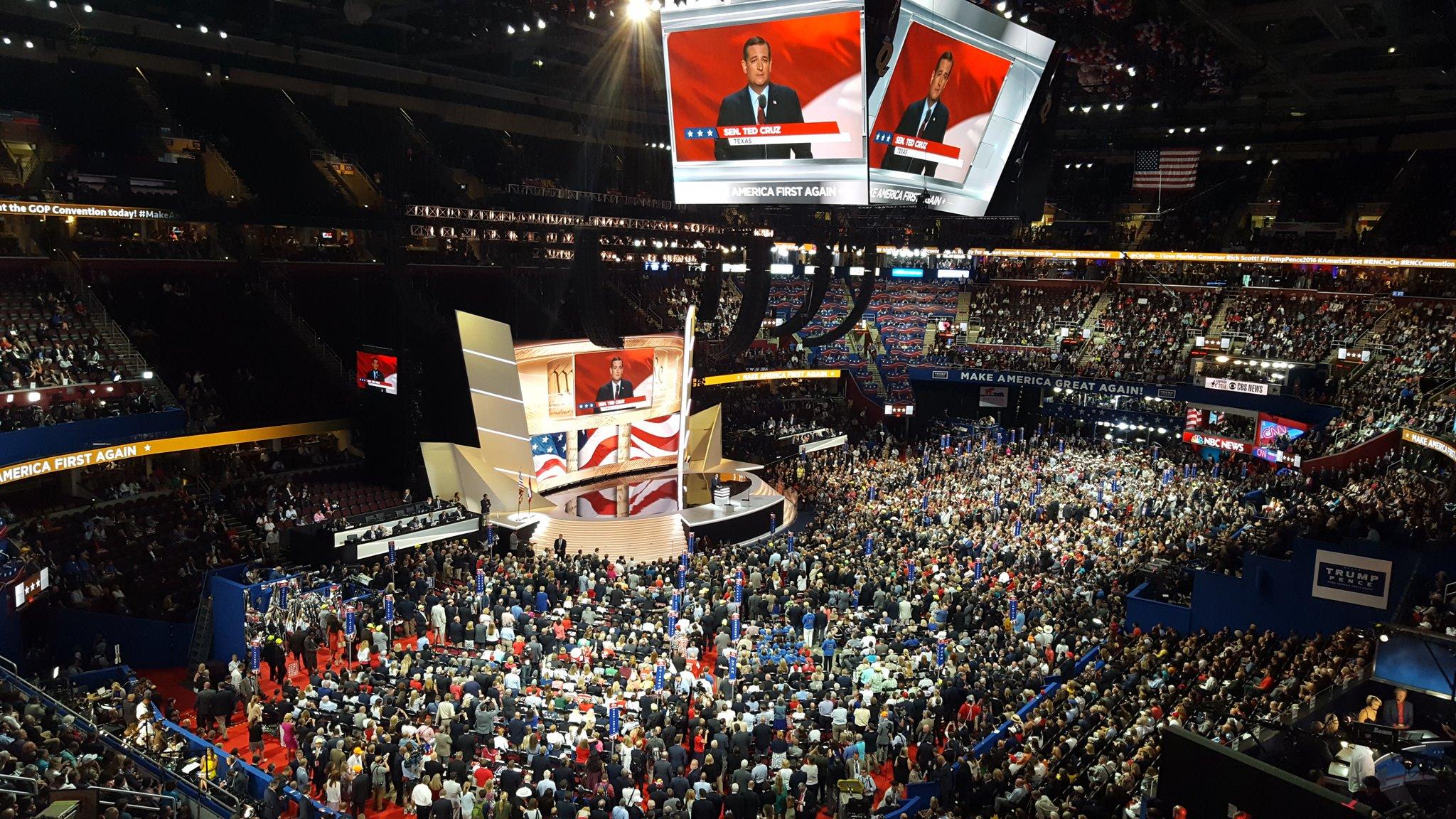Party Conventions Present Unusual Risks in 2020

- The candidates’ choices present different, but significant risks
- An in-person convention could be a public health and public relations disaster.
- An online convention could be a boor.
National party conventions are symbolic pep rallies. In the modern era, we know who the nominees will be in advance, so there’s no drama there. But the conventions tell us a great deal about the candidates and the state of the campaign.
Candidates can use conventions to shape their image. They show us who they are at the convention. In addition, the party’s platform offers a useful snapshot of the party’s priorities and positions on the important issues facing the nation. The polling “bounce” that we see after a convention is a good indicator of the enthusiasm that a candidate can generate among voters, and this often shapes the media narrative around the campaign.
In 2020 we will see two very different candidates showing us very different images as COVID-19 poses monumental challenges for campaigns and voters. In many ways this election year will be a bizarre natural experiment. Many of the forms, traditions and tactics that we are used to seeing in a presidential campaign have been upended by the epidemic.
The parties are taking radically different approaches to their conventions. President Trump has insisted on an in-person event, to be held in Jacksonville, FL. Democrats will hold their convention in Milwaukee, WI, though few people will actually attend and the party plans to conduct most of the convention remotely. Both approaches could create important symbolic moments for voters, and both approaches carry much more risk than conventions would create in a typical year.
The risk for Joe Biden is that an online convention isn’t really a convention. Or, at least, it isn’t the kind of convention that we are used to seeing. A normal convention features large crowds, rousing speeches from party luminaries and wall-to-wall media coverage. Every news outlet in the country covers the national conventions, and networks carry the nightly programs live.
Will any of that be true for the Democrats this year? The party is currently emphasizing safety, so it isn’t clear how many people will be in the audience (will there be a live audience?) when Mr. Biden gives his acceptance speech. The optics of a presidential candidate giving an acceptance speech to a sparse, socially distancing crowd are not ideal for television.
The absence of large events and in-person campaigning has not hurt Mr. Biden thus far. But an online convention with little media coverage and mediocre viewership may project the image of a candidate who is an afterthought in his own campaign. If the convention fails to generate enthusiasm, Democratic organizing and turnout could fail to materialize in the fall. It is possible that Democrats will be so motivated against President Trump that it won’t matter, but the risk is real.
For President Trump, the risk of an in-person convention is that it will display some of the most negative, most unpopular aspects of his presidency. A live convention risks public health. It could also cement the image of a chaotic president who has minimized the COVID-19 crisis and is completely out of touch with the current needs of the country.
The chaos began when the party relocated the convention to Jacksonville. The convention was originally planned for Charlotte, NC, but the governor of North Carolina refused to guarantee that the state would be able to lift COVID-19 restrictions. The president demanded that the convention move to a place that would not insist on social distancing during his acceptance speech.
This move has also caused problems for convention organizers who used up convention funds planning for an event in Charlotte. They have since struggled to raise money from donors who either aren’t sure that the convention should happen or aren’t sure the convention will be able to happen, given the current spread of COVID-19 throughout Florida.
The partisan divide on the disease may be growing, but many Republicans are not enthusiastic about attending large indoor gatherings right now. Over 60 percent of Republicans say they are still avoiding large gatherings, and several Republican senators have already announced they will not be attending. The state has six weeks to contain the epidemic before thousands of Republican delegates (maybe?) arrive.
Even if the convention goes forward, it is not clear that it will be a win for the president. A majority of voters disapprove of the president’s indoor rallies. Polls show that voters disapprove of how the president has handled the virus, and holding a large event in the middle of one of the worst hot spots in the country does not seem like a good strategy to reverse that trend.
Will Joe Biden’s online convention show a safe, responsible candidate that will comfort voters, or will the voters just ignore it?
Will President Trump’s convention be a chaotic public health disaster or will a raucous live event drum up the enthusiasm needed to rescue his campaign? This election cycle presents us with unprecedented questions, and it is not clear how candidates should demonstrate leadership and appeal to voters.
There are no safe strategies in 2020.